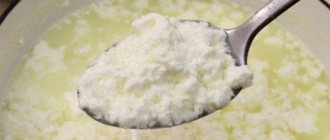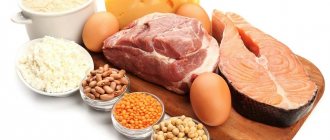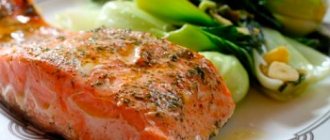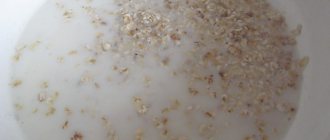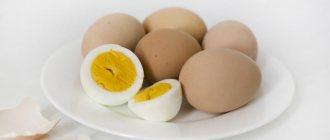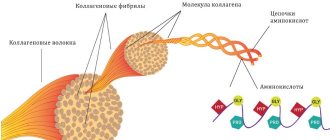Beneficial properties of egg whites: calorie content and nutritional value for the body. Advice from experts on preparation and consumption.
Chicken eggs often have a bad reputation for being high in cholesterol and fat. If a person is looking to reduce their intake, then using egg whites instead of the whole product may be a smart move. Although this protein is not a storehouse of nutrients, it provides certain benefits to the body without consuming many calories. This is due to the fact that it contains practically no fats and carbohydrates.
A little about egg whites
Before talking about the chemical composition of egg whites, you should understand what kind of product it is and why it has become so popular. First of all, it is worth understanding that it is an incredibly powerful immunostimulant with pronounced bactericidal properties. In its fresh form, the protein is quite unsightly - a viscous, colorless and odorless liquid with a slight gluing effect. Therefore, almost no one ever uses it in this form. When heat treated, the protein becomes denser and whiter in color, and when whipping this product, a stable foam is obtained.
However, the composition of egg white is most remarkable: the proteins, fats and carbohydrates contained in it can easily replace a whole glass of milk or about 50 grams of meat. In addition, this product is easily absorbed by the body, so it receives all the beneficial substances that it contains.
Important nuances
Egg white promotes the regeneration of muscle tissue and helps in the treatment of cataracts. A small disadvantage is the fairly high sodium content in it. However, the low calorie content compensates for this disadvantage.
A number of nutritionists recommend refraining from consuming this product, as it contains a harmful substance - avidin, which can worsen metabolism. Also, when consuming raw eggs, there is a risk of developing salmonellosis.
The egg whites of ducks, quails and geese are as easily digestible as chicken eggs.
Chemical composition of egg white
If you take a closer look at the composition of an ordinary egg, especially the protein, you can pay attention to the presence of a number of balanced biologically active components that are very beneficial for the human body. In total, protein contains about 86.5% moisture as a percentage. The rest comes from proteins - 12.5% of the composition. There is no fat in it at all, and less than 1% carbohydrates.
If you take a closer look at the chemical composition of egg whites, you should pay special attention to water-soluble vitamins. Eggs contain a high level of B vitamins, especially B4 and B9. Unfortunately, there are no fat-soluble vitamins in this product. However, this does not prevent them from stimulating the production of sex hormones, preventing the possibility of defects occurring in the developing fetus during pregnancy, and normalizing blood clotting.
In addition, the mineral composition of this product is also interesting. Selenium, sodium, magnesium, iron, phosphorus, potassium, zinc, manganese and copper come to the fore here. They perfectly help maintain the desired level of strength in nails and teeth. In addition, frequent consumption of protein can lead to accelerated regeneration, healing of wounds and abrasions on the skin and mucous membranes.
Product types and categories
Before you figure out how much protein is in an egg, you need to understand what types of product exist. Often people take packaging without thinking about the subtleties - caring only about integrity. We will go further and figure out what types and categories are currently on store shelves.
Let's start with the view - there are only two of them.
- Dietary (D). The shelf life does not exceed seven days; there is a corresponding red stamp on the shell. The shell is clean, with a small number of dots, the amount of space occupied by air under the shell does not exceed 4 mm;
- Dining rooms (C). There is a blue stamp on the shell with the corresponding letter, the amount of empty space is from 5 to 7 mm. The shelf life reaches 25 days outside the refrigeration chamber and 90 days inside it; there may be dots and stripes on the shell (but not more than 12.5% of the total surface area).
The only difference between them is the shelf life; these are not specific varieties or different products. Most often on the shelves we find a product labeled “C”. Therefore, it’s worth talking separately about possible categories! There are several of them, now you will find out all the necessary information, and then we will talk about how many grams of protein are in one egg.
We also recommend: Cashew
Product category is determined by weight! Now you will find out how much protein is in an egg C0 and others:
| Category | Size | Approximate weight (in grams) | Amount of protein (in grams) |
| C3 | Little ones | 40 | 4,4 – 5,7 |
| C2 | Average | 50 | 5,7 – 7,0 |
| C1 | Large | 60 | 7,0 – 8,2 |
| C0 (Selected) | Very big | 70 | 8,2 – 9,5 |
| SV (Higher) | Huge | 75 | 9,5 – 12,7 |
Separately, you can isolate the protein in the yolk of an egg - approximately 2.5 - 3 grams! The rest of the element is contained in the protein shell.
Amino acid composition of egg white
As mentioned earlier, protein consists almost entirely of moisture. However, the protein it contains is represented by amino acids that are so necessary for humans - ovoalbumin, conalbumin, ovoglobulin, vovmucoid, lysozyme, avidin and ovomucin. Particular attention should be paid here to ovoalbuin and conalbumin, which belong to flavoproteins.
Their presence in the egg makes it possible for the nascent organism to develop, since it is a source of plastic materials. And if you are interested in their effect in cooking, then these amino acids allow you to achieve stable foam when whipping. However, it is worth noting that the composition of egg white contains quite a few amino acids compared to the yolk, so you cannot see much variety.
Among the amino acids, valine, leucine, isoleucine, tyrosine, tryptophan, cystine, threonine and many others can be particularly distinguished. They help activate the brain, and also help renew the body's cells and cleanse blood vessels by reducing the level of bad cholesterol in the blood. All this leads to improved functioning of the cardiac system.
Calorie content
Now that the chemical and amino acid composition of egg white has been reviewed, it is worth talking about the nutritional value of this product. By the way, the calorie content of protein is quite low, and therefore it belongs to the category of dietary products that can be safely consumed while losing weight without much fear for your figure. Just 100 grams of egg white contains no more than 48 kcal.
However, before consuming this product, you must carefully ensure that the egg is fresh. To do this, you will need to pour water into a bowl and then put it in it. If the egg is fresh, it will simply lie horizontally at the very bottom. But if the product has been lying around for more than a week, then the egg simply turns upside down and begins to float slowly. An egg frozen in water in a vertical position indicates that it was laid about 3 weeks ago, but the floating product has been “experienced” for more than a month. This is explained by the fact that an air chamber begins to form between the white and the shell, which affects buoyancy. Doctors and nutritionists do not recommend eating eggs that were laid more than two weeks ago.
Yolk composition
If you compare the composition of egg white and yolk, you can notice a strong difference. The first thing you should pay attention to is the quantity and quality of protein. In the yolk, the main one is vitellin, the content of which in this product is almost 80%. In addition to all this, it contains about 50 percent moisture, about 17.3% protein, but quite a lot of fat - as much as 31.2% of the total chemical composition. Among them, only one third is phospholipids, but the rest are neutral fats, which are better known as triglycerides.
Egg yolk and white also contain a number of vitamins. What they have in common is group B, although retinol can also be found in the yolk. Minerals include potassium, calcium, phosphorus, sodium, magnesium and iron.
Since the yolk contains a larger amount of fat, the calorie content of such a product is much higher. There are about 363 kcal per 100 grams, which is why people who are losing weight try so hard to avoid it.
How many grams of protein are in the white of one egg?
Chicken or quail protein consists of 87% water and only 11% of the main nutrient - protein.
The remaining 2% is formed by various minerals and ash. To calculate how many grams are in the white of one egg, you need to know the category of chicken eggs, which takes into account many parameters, including the weight of the product. This table will help you navigate and find out the required result without using calculations: Protein content in one egg white
| Egg category | Egg weight (in g) | Weight of egg white (in g) | Protein content (in g) |
| 3 | 35-44,9 | 23-30 | 2,6-3,3 |
| 2 | 45-54,9 | 30-36,6 | 3,3-4,1 |
| 1 | 55-64,9 | 36,7-43,3 | 4,1-4,8 |
| "ABOUT" | 65-74,9 | 43,3-50 | 4,8-5,6 |
| "IN" | above 75 g | above 50 g | above 5.6 |
Dehydrated egg white
Now let's talk about albumin, which is also known as dried egg white. The composition of this powder is practically no different from the raw product, since the processing is carried out in such a way as to preserve all the beneficial properties and nutrients present in it. Albumin itself is a simple cream-colored powder without a distinct taste or odor. In Russia, it is usually used only by athletes who are actively engaged in “drying” the body. This is due to the fact that the processed composition of dried egg whites cannot infect a person with salmonellosis or other diseases, as if drinking a fresh egg.
In addition, the shelf life of albumin is much longer, and it is also quite easy to store and transport. It is worth noting that now in the food industry they are increasingly using this product in bakery production, as well as in the production of cocktails and desserts that require raw proteins in the recipe.
Egg powder
In egg powder, the composition of whites and yolks is quite difficult to separate due to the method of its production. This product is made by mixing eggs until smooth, which is then carefully strained and dried at very high temperatures. High-quality egg powder has a pleasant light yellow color and a pronounced aroma.
In terms of its chemical composition, the product is practically in no way inferior to ordinary fresh eggs, and it plays their role quite well in cooking. Now it is actively used in the production of semi-finished meat products and confectionery products.
In total, egg powder contains 542 Kcal per 100 grams of dry product. Vitamins A, B and D play a significant role in the composition. Protein remains easily digestible and provides the body with the amount of nutrients it needs for the construction of new cells. In general, one hundred grams of egg powder can easily replace 8 large eggs. However, there is a downside - it contains a large amount of cholesterol, which provokes the formation of cholesterol plaques in the blood vessels. So you should be careful when consuming this product.
Application
Egg white is successfully used in cooking: it is added as one of the ingredients to salads, baked goods are greased with raw egg white, or it is whipped to make unusual confectionery products. Raw chicken protein is good for burns, has a positive effect on the skin as a mask, and also perfectly nourishes the hair.
Market Analytics
- Black Lives Matter movement: reaction and consequences for the beauty industry
- COVID-19 is changing the rules of the game in the cosmetics market
- Beauty of the future: cosmetic innovations 2020
Convenient search for beauty salons on our website
Beauty salons in Moscow Beauty salons in St. Petersburg Beauty salons in Ekaterinburg Beauty salons in Novosibirsk
Latest blog posts on our website
- Naturecream / Apricot kernel oil for face
- Naturecream / MATRIXYL3000 - the best skin elasticity stimulator
- Naturecream / SPF in Natural Oils
- Naturecream / Geranium (Pelargonium) oil for skin health and beauty
- Prostye-sovety / Save on a beauty salon: procedures that can be done at home
- Naturecream / Growth Factor - brings back youth?
- Oksana-Lezina / 3 effective abdominal exercises from a fitness instructor for beginners
- Prostye-sovety / Making perfect curls at home
- Prostye-sovety / Which hair removal method to choose
- Naturecream / Wrinkles Puppets
Latest forum topics on our website
- Natalya / How to properly make a gelatin mask?
- Mrs._Smith / Badly sunburned! What to do?((
- Ice / Is it necessary to combine fitness classes with a diet?
- Antonova / What can be used for hair loss?
- Radio operatorKat / Who was on a protein diet?
Other articles in this section
| Turtle egg Turtle egg is white, round, spherical in shape, soft shell. The contents of the egg are a bird-like yolk and a jelly-like mass of white. |
| Chicken egg (soft-boiled) Chicken eggs are a staple food product that is very popular in all countries of the world. The quality of eggs depends on the birds' food, their health and habitat. They all have a round shape, and the size depends on the age of the bird and its condition. The largest eggs are laid by adult chickens that are fed high-quality feed. |
| Turkey egg Turkey eggs became famous thanks to the Spaniards, who brought turkeys from America. The egg shell is dense with many pores. The color is creamy white with flecks. Weight depends on the age of the hens: the younger the bird, the smaller and lighter the eggs. On average, an egg weighs about 75 grams. |
| Chicken egg (hard-boiled) Chicken eggs began to be eaten a very long time ago. Since then they have become one of the essential products. Without eggs you can’t bake pies, you can’t make a salad, and often it’s delicious to just eat one or two boiled eggs. |
| Goose egg In the human diet, such a product as goose eggs appeared approximately 10 thousand years ago. years BC, when people domesticated geese. They have a dense white shell and weigh about 200g. They are about 3-4 times larger than a chicken egg. |
| Chicken egg (dry yolk) Chicken egg (dry yolk) is a dry egg powder, produced by the process of dividing the egg into its components - yolk and white. The production process also includes subsequent filtration, pasteurization and drying of the product. The result of all these manipulations is a powdery mixture (from light yellow to orange). The powder has a uniform crumbly structure, but the formation of small lumps is also possible, which are easily crushed when pressed. The taste and smell of the product is unique and corresponds to the taste qualities inherent in a dried egg without additional impurities. There are standards that a product must meet in terms of fat, protein content, and the proportion of mass moisture; the acidity of the product and its solubility are also taken into account. |
| Ostrich egg The eggs of the largest bird on the planet, the ostrich, weigh from 1.2 kg to 2.2 kg. The shell is white or light yellow and almost black, depending on the breed of bird. The shell is smooth and has small pores on its surface. The weight of the shell is about 200 g, and the thickness is about 2 mm. Ostrich eggs are very durable; they can withstand a load of about 50 kg. Compared to a chicken egg, an ostrich egg can support 15 times more weight. |
| Duck egg Duck eggs range in color from white to gray-green. Their size is slightly larger than the size of chicken eggs. Duck eggs have a rich taste and smell. The weight of one duck egg can reach 90 g. |
| Chicken egg Depending on the type of bird, breed and location of the clutch, eggs can be of different sizes, shell colors and shapes. |
| Powdered eggs Egg powder was first obtained at the end of the nineteenth century. It is known that this product was exported to Russia even in pre-revolutionary times. Since then, nothing has changed - powdered eggs are freely exported and accepted as imports to this day. |
The benefits of protein
Now that we have found out about the composition of egg whites (proteins and amino acids contained in it), we should also mention the beneficial properties of this product. The first thing to note is the complete absence of fat in this product. This makes it an excellent dietary ingredient that can be safely consumed on a diet.
In addition, protein is an excellent source of protein, which a person needs for the normal functioning of the body. Once in the body, it moves through the blood and performs several functions at once: protective, transport (helps deliver oxygen to all tissues and organs), catalytic (carries out metabolic reactions) and regulatory (normalizes hormonal levels).
It is also recommended to periodically consume egg whites to improve the immune system. The protein enters directly into the cells, and therefore significantly increases their barrier properties. This helps prevent the development and further spread of infectious diseases. And, of course, one cannot fail to mention the main role of proteins in the body - they provide it with the necessary amount of building material for bones, skin and muscle fibers.
So consumption of egg white is very important for normal health. Doctors often recommend eating it if you have diseases affecting the liver, gastrointestinal tract and gall bladder.
It is also worth mentioning that protein can be used in home cosmetology. Housewives often use it to create masks for oily facial skin or in cases where there is strong pigmentation or wide pores. Masks based on egg whites also work well. If you have problems with split ends or baldness, you should definitely try applying an egg white product to your hair.
Benefits and harms
But is it safe to eat chicken eggs? Professional athletes gobble up dozens of them a week, but now we are still talking about mere mortals.
In fact, the harm of egg yolks in terms of cholesterol accumulation has been greatly exaggerated! Moreover, high-density lipoproteins are reduced in the blood of a person who regularly eats eggs. That is, there is no danger to the heart and blood vessels when eating the product.
Another thing is that there is a lot of fat in an egg - several grams. All fats are concentrated in the yolk, which is also digested for at least 3 hours in the stomach. This composition greatly complicates digestion and puts an end to the rest of the diet in matters of weight loss.
But eating whole eggs (along with the yolk) is indicated when gaining muscle mass. The fats contained are needed to increase anabolism in the body and better assimilate the proteins entering it.
Harm
The proteins contained in egg whites can be not only beneficial, but also dangerous for the body. Primarily due to the fact that this product is a strong allergen. Under no circumstances should it be used in cases where there is an individual intolerance or hypersensitivity to this ingredient. There is also no need to use raw eggs without heat treatment - there is always a chance of contracting a dangerous disease like salmonellosis.
But as for cholesterol, protein actually has a high level of this substance. However, as scientists have found out, the cholesterol it contains is beneficial, not harmful, and therefore does not pose a danger. Boiled yolk is much more dangerous here.
Daily norm
How many eggs do you need and can you eat every day? A person’s daily need for protein material is calculated by weight - the formula is simple: 1 gram of protein per 1 kilogram of body weight.
You already know how many grams of protein are in 1 chicken egg - based on this, you can competently plan your diet and get the required amount of the element. Don't forget the following parameters:
- There is no need to eat more than 2-3 eggs daily;
- If you want to eat more, remove the yolk - it is quite high in fat and cholesterol;
- Don't forget to fill your daily requirement with other protein products - meat or nuts are great.
Also recommended: How many macadamia nuts can you eat per day?
It's time to talk about cooking methods - it's important! After all, heat treatment affects the change in the indicator we need.
Egg white in cooking
Egg whites are most actively used in cooking. There are a huge number of confectionery products that require them in their composition. For example, they are used to make delicious meringues and meringues that are popular all over the world. True, during baking you should carefully monitor the process so as not to accidentally burn it, since eggs do not forgive such mistakes. There is also a very tasty protein cream, which is actively used in the confectionery industry to decorate cakes and pastries.
In addition to sweet pastries, fresh protein is also added to minced meat during the preparation of cutlets and meatballs, as it has adhesive properties. Acting as a binder, it ensures that the dish does not fall apart during cooking.
How long can egg whites be stored in the refrigerator?
The shell is a reliable barrier; it protects the contents from spoilage for 20 days without refrigeration. If the product is kept at a temperature of 0 to 5 degrees, then it can be consumed for 60 days. Separated egg whites are a different matter entirely. They can be stored in the refrigerator for no longer than 5 days in a closed jar. For longer storage, it is better to freeze them. True, in this case they partially lose their ability to whip into a fluffy foam.
The amount of protein in one egg is not the highest when compared to other animal products. But it is the most complete, including absolutely all essential amino acids. Because of this, steamed omelettes are allowed on all diets.
Effect of egg white on muscle mass
Before the advent of special sports nutrition, bodybuilders actively consumed raw eggs. At the time, this was a great way to provide the body with the protein it needed to build muscle. In addition, eggs contain a large amount of amino acids, which are necessary for damage to protein fibers, which often occurs during intense strength training.
Overall, egg protein helps to dramatically increase testosterone and hemoglobin levels, and also provides the body with the right amount of leucine. All this combined satisfies hunger, helps restore damage and increase strength.

